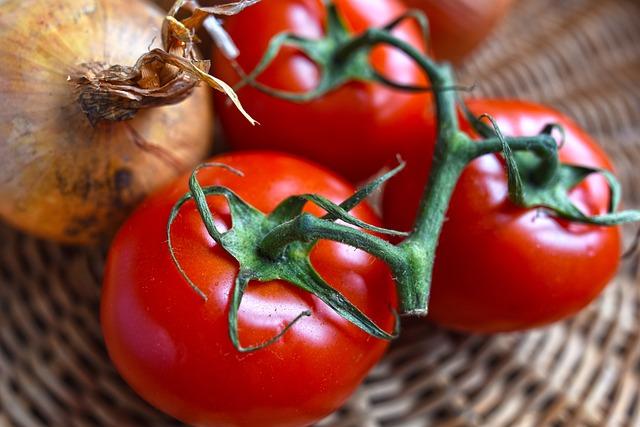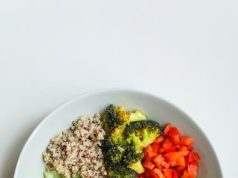In a world where sweetness often tempts us at every turn, the quest for a balanced diet can feel like navigating a sugar-laden labyrinth. As we become increasingly aware of the impact of sugar on our health, the desire to reduce its presence in our daily meals has never been more pressing. But fear not, for the journey to a naturally sugar-reduced lifestyle need not be a bitter one. This article offers a selection of creative and practical tips to help you gently steer your diet away from excessive sugar, all while maintaining the joy and satisfaction of your favorite foods. Join us as we explore the art of crafting a healthier diet, where nature’s own sweetness takes center stage, and your taste buds are invited to rediscover a world of flavors beyond the sugar bowl.
Exploring Natural Sweetness Alternatives
When it comes to curbing sugar intake, nature offers a delightful array of alternatives that can sweeten your dishes without the sugar rush. Fruit purees like applesauce or mashed bananas not only add sweetness but also bring moisture to baked goods, making them a perfect substitute in recipes. You can also explore the rich flavors of dates; these naturally sweet gems can be blended into smoothies or used as a sweetener in your favorite desserts.
For those who enjoy their beverages sweet, consider using stevia, a plant-based sweetener that’s virtually calorie-free. It can be a great addition to your morning coffee or tea. If you’re a fan of maple syrup, try the less refined honey or agave nectar for a similar taste with a natural twist. Lastly, don’t overlook the subtle sweetness of coconut sugar, which can be used as a direct substitute for white sugar in many recipes. These natural alternatives not only satisfy your sweet tooth but also bring a host of nutrients and flavors to your diet.

Harnessing the Power of Whole Foods
Incorporating whole foods into your diet is a vibrant way to naturally reduce sugar intake. Whole foods, such as fruits, vegetables, grains, and nuts, are packed with essential nutrients and fibers that help regulate blood sugar levels. Here are some practical tips to guide your journey:
- Choose fresh fruits over processed snacks. The natural sugars in fruits are balanced with fibers, which help slow down sugar absorption.
- Opt for whole grains instead of refined grains. Whole grains like quinoa, brown rice, and oats provide a steady release of energy without the sugar spikes.
- Incorporate healthy fats from avocados, nuts, and seeds. These not only add flavor but also help in keeping sugar cravings at bay.
- Experiment with spices like cinnamon and vanilla to add sweetness without the sugar.
By making these simple yet effective swaps, you can enjoy a diet that nourishes your body and keeps sugar levels in check.

Mindful Eating for Sugar Reduction
Embracing a mindful approach to eating can significantly aid in reducing sugar intake. By focusing on the present moment and truly savoring each bite, you can become more aware of the natural flavors in your food, reducing the need for added sugars. Here are some practical tips to incorporate mindfulness into your eating habits:
- Pause Before You Eat: Take a moment to appreciate your meal’s aroma and appearance. This small pause can enhance your eating experience and help you consume less sugar.
- Chew Thoroughly: Slow down and chew your food thoroughly. This practice not only aids digestion but also allows you to recognize the natural sweetness in fruits and vegetables.
- Listen to Your Body: Pay attention to hunger and fullness cues. By eating only when truly hungry, you can prevent unnecessary sugar cravings driven by emotional needs.
- Choose Whole Foods: Opt for whole, unprocessed foods that contain natural sugars, such as fruits. This helps in maintaining a balanced diet without relying on refined sugars.
Integrating these mindful eating practices into your daily routine can lead to a gradual reduction in sugar consumption, promoting a healthier lifestyle without feeling deprived.

Crafting a Balanced Plate
When aiming for a harmonious culinary experience, it’s essential to focus on crafting meals that nurture both body and palate. Reducing sugar intake doesn’t mean sacrificing flavor or satisfaction. Embrace natural sweetness by incorporating fruits like berries, apples, and citrus, which not only satisfy sugar cravings but also provide vital nutrients and fiber. Consider replacing sugary snacks with these healthier alternatives, and you’ll soon find your taste buds adjusting to more subtle sweetness.
- Opt for Whole Grains: Choose whole grain bread, pasta, and rice over their refined counterparts to maintain steady energy levels without the sugar spikes.
- Spice It Up: Utilize cinnamon, vanilla, and nutmeg to add depth and warmth to dishes without extra sugar.
- Get Creative with Veggies: Sweet potatoes, carrots, and squash offer a natural sweetness that can enhance any meal.
Adopting these strategies not only reduces sugar but also enriches your diet with diverse flavors and textures. Over time, you may discover that the vibrant taste of whole foods is far more satisfying than any sugar-laden treat.






























